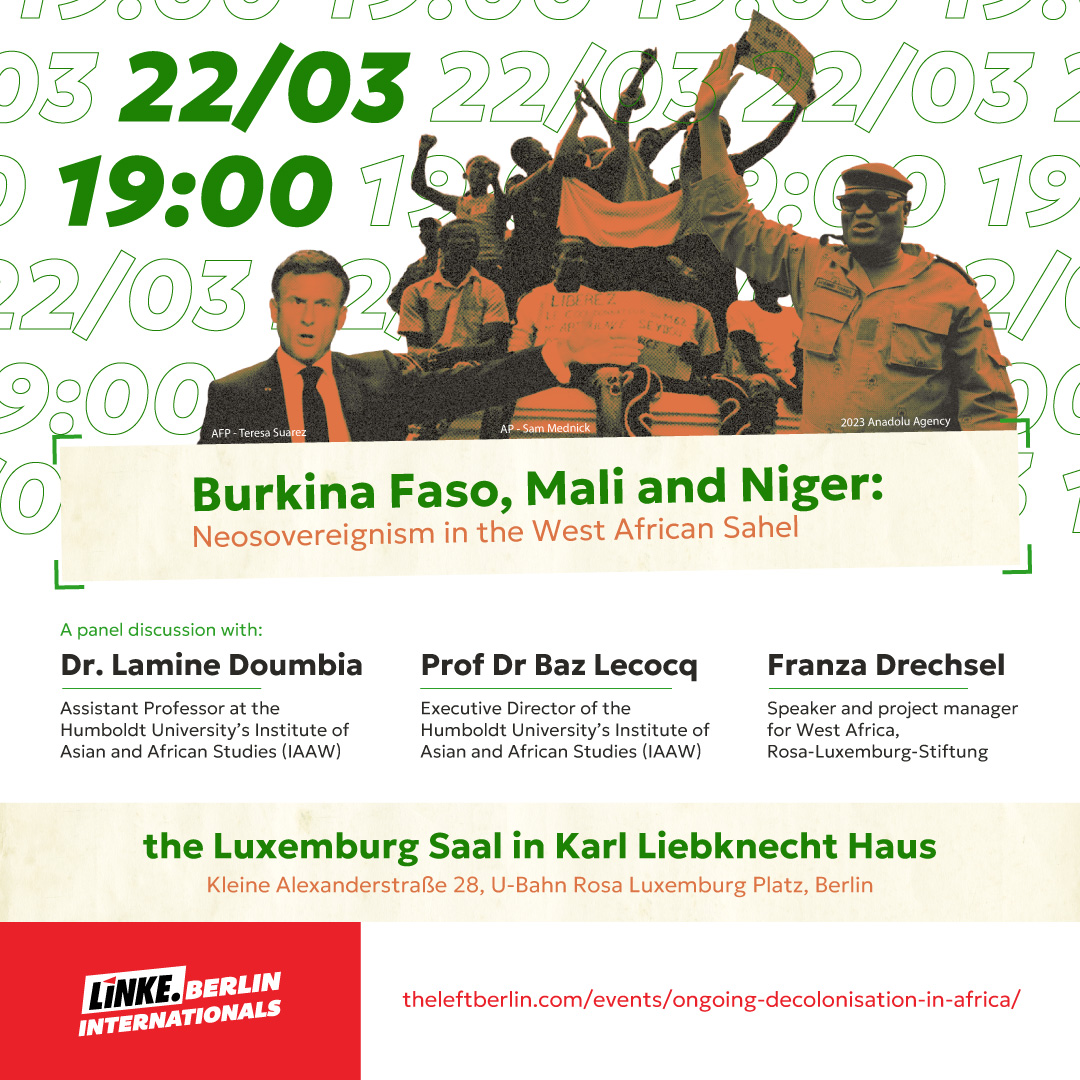(This event is not organized by The Left Berlin)
Since early 2020, the Sahel Region has been increasingly referred to as the “Coup Belt”. The region has witnessed several successful and consecutive coups d’état in Guinea Conakry, Mali, Burkina Faso, Niger and Chad, next to what has been labeled a civilian coup in Senegal.
Until then, French influence had been quite powerful, be it in regard to the presence of the French army, using the CFA franc currency and French as their official language, to the domination of French companies in their financial markets and natural resources, as well as political interference.
Since then coups, the military juntas have been using a language of “neosovereignist” populism and have broken links with their former French coloniser, France. The three governments have formed the Alliance of the Sahel States and announced their retreat from the Economic Community of West African States (ECOWAS).
It seems that “Francafrique”, as the intimate and sometimes obscure political and economic relations between French and West African power elites have been labeled on the wane. But is this really so, and if so, why? What role do the military governments and their “neosovereignist” discourse play here? Are the juntas getting as close to Russia as is often claimed? What repercussions will these ties have? And what is or could be Germany’s possible role in these new geostrategic developments in West Africa? T
These and other questions will be addressed in tonight's meeting. We will be discussing this topic together with our speakers:
- Prof. Dr. Baz Lecocq, Executive Director of the Humboldt University’s Institute of Asian and African Studies (IAAW)
- Franza Drechsel, Senior Advisor and Project Manager for West Africa at Rosa Luxemburg Foundation
- Dr. Lamine Doumbia, Assistant professor at Institute for Asian and African Studies - Humboldt University and a member of the research unit on Life world in crisis (LinC)
After inputs from the speakers, there will be time for you to ask questions and make your own contribution to the debate
